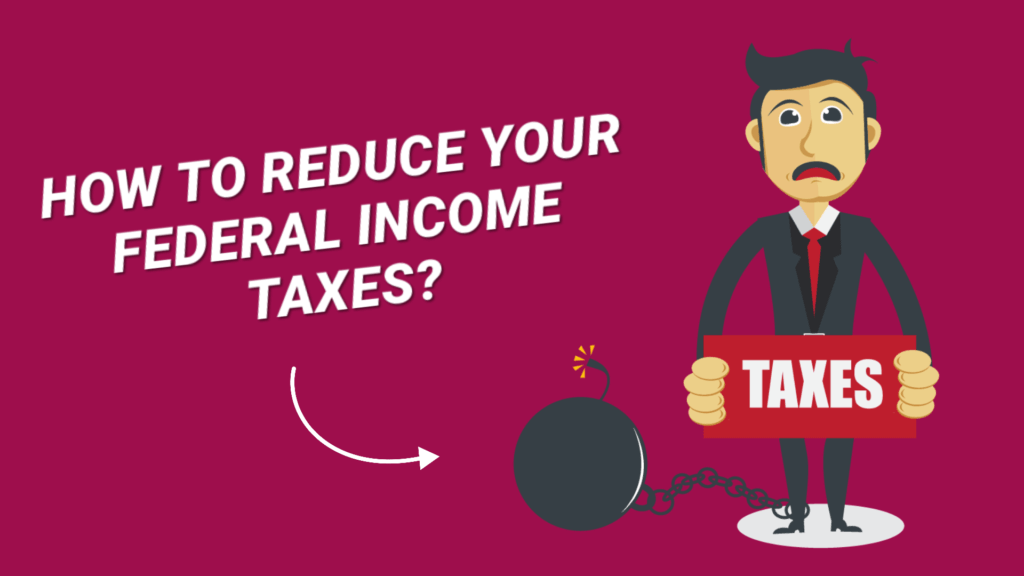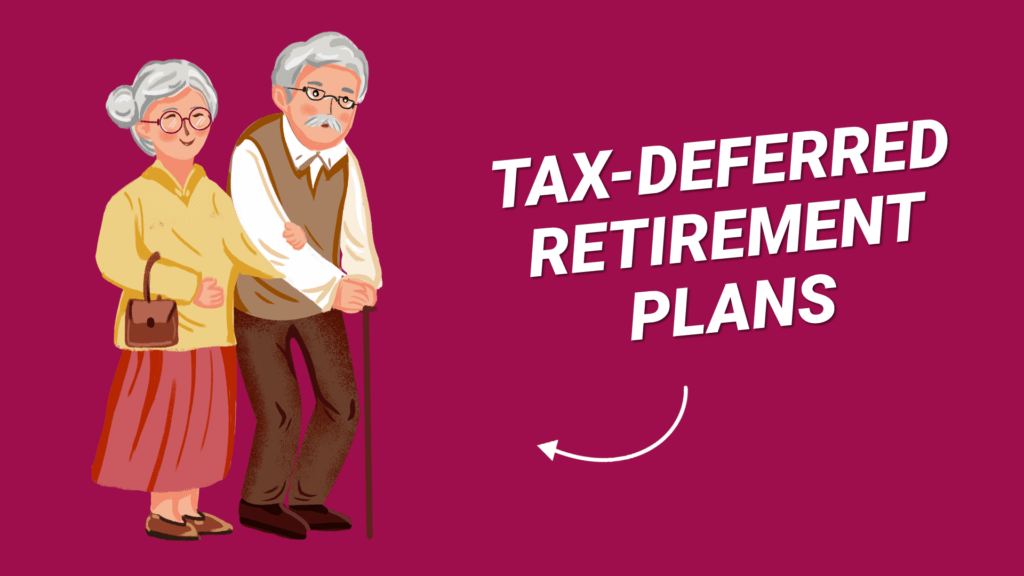Do you want to reduce your federal income taxes? More than 99% of people will answer yes to this question. Your goal is to take advantage of everything that will allow you to reduce your tax liabilities. The first step is a thorough assessment of your income tax situation. Make sure you’re meeting your tax obligation through your withholding and your estimated tax payments, or a combination of both. Here are some of the most popular ways you can reduce your federal income taxes:

Sell at a loss:
If you’re planning to sell a stock in which you have a huge capital gain, consider pairing the sale with a different security in which you have a loss. In that way, you can offset your gain with a loss and perhaps pay less, or nothing, in capital gains taxes. If you still want to hold the stock that’s down, consider selling for tax purposes and then repurchasing the stock thirty-one days after you sell. If you repurchase the stock before the thirty-first day, the IRS’s “wash sale” provision will disallow your loss.
Also Read: The Time to Reduce Next Year’s Taxes Is Now
Shift some income to your children:
Up to age fourteen, children pay tax on income over $1,400 at your marginal tax rate. (The first $650 in investment income earned is generally tax-free.) That’s the so-called “IRS kiddie tax.” At age fourteen, children pay based on how much they earn, just like anyone else. If you transfer assets to your children, you may pay less tax. On the other hand, your child will have control of those assets. On significant gifts, you may have additional gift taxes. You may give anyone a gift of up to $10,000 per year without triggering the gift tax.
Increase your charitable giving:
If you paid a few thousand dollars for a painting now worth millions, you may be able to donate that painting to charity at its appreciated value, and use that value as a deduction against your current tax obligation. In addition, you owe no tax on the appreciated value of the asset.

However, the sky is not the limit. If you give cash, you can deduct the full amount of your contribution up to 50 percent of your adjusted gross income. If you’re giving more than that, you can carry forward the unused portion of the deduction for the next five years. If you still haven’t used it up, it’s gone. If you’re giving appreciated assets, the maximum you can deduct is 30 percent of your adjusted gross income. If you need more time than that, consider pledging your donation over ten or twenty years. That effectively allows you fifteen or twenty-five years in which to maximize your deduction.
Roll It over:
If you leave your job, are laid off, or are fired, and you have been contributing to a retirement account, you may take your contributions (as well as any matching proceeds that you are entitled to, based on your years at the company) and roll them over directly into an IRA without having to pay a tax. If you do not have the funds transferred directly into an IRA account, you’ll be assessed a 20 percent penalty.
You have sixty days to enact the transfer without triggering the penalty. And, you may make one tax-free rollover per year per IRA account. If you are rolling over a traditional IRA to a Roth IRA, however, you will have to include the amount of your IRA with your gross income and pay taxes on the amount transferred.
More Tips To Reduce Your Federal Income Taxes
Getting the most out of your taxes should be a top priority for every working man and woman, especially if you have a family. With a proper breakdown of your tax portfolio, you can begin taking advantage of your opportunities by following the tips below to reduce your federal income taxes:
Tax-deferred retirement plans:

Whether you have access to a 401(k), a 403(b), a regular IRA, or a Keogh plan, making the most of your tax-deferred retirement plans is the fastest way to build for your future and reduce your federal income taxes. Why? Because every dollar you put into a retirement account today reduces this year’s taxable income.
You may be limited in how much you can contribute to a particular plan, but you have at least postponed the taxes on that income. On the down side, you have restricted your ability to use that money until you retire. Most people should pump every dollar they can into a tax-deferred account.
Flexible spending accounts:
Employers often offer flexible spending accounts, also called “cafeteria plans,” which allow you to put a certain amount of pretax dollars away to pay for medical, dental, or dependent care expenses that are not otherwise reimbursed, such as coinsurance payments or a nanny’s wages. Because these are pretax dollars, they effectively reduce your taxable income. On the other hand, these plans are usually headlined “Use It or Lose It.” If you don’t spend everything in your account by the end of the year, you lose the cash.
Mortgages and home equity loans:
Every dollar you pay in interest on mortgages (up to $1 million) or on home equity loans (up to $100,000) is tax-deductible. The higher your mortgage interest, the lower your taxable income (if you qualify for itemization).
Timing is everything:

You can accelerate your deductions by playing around with dates. Make one additional mortgage payment this year instead of next. If you want to boost your deductions for next year, close on your home on January 2 (or the first business day after the New Year’s holiday), and you can deduct points paid on your next year’s taxes. You may also be able to push income into the next year, which lowers your tax obligation for this year.
The tax consequences of investing:
Different types of investments offer various tax advantages. Some of the best include: municipal bonds; U.S. Treasury bills, notes, and bonds; U.S. savings bonds; investment real estate; annuities; and stock. Each of these investments has pros and cons. Your dividends from a municipal bond, for example, may be tax-free, but the interest rate you earn may be lower than from other sorts of bonds.
Conclusion
Choose the perfect way or tip that suits you and help to reduce your federal income taxes. If you feel this information helpful then do share it with your needy friends and family.
Have any questions? Drop in the comment box below and we will try to answer it as early as possible.



1 Comment
Anil Khandare · February 3, 2023 at 5:39 pm
123456789